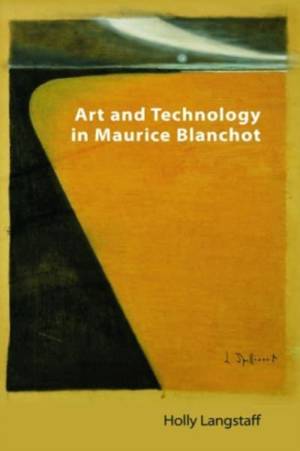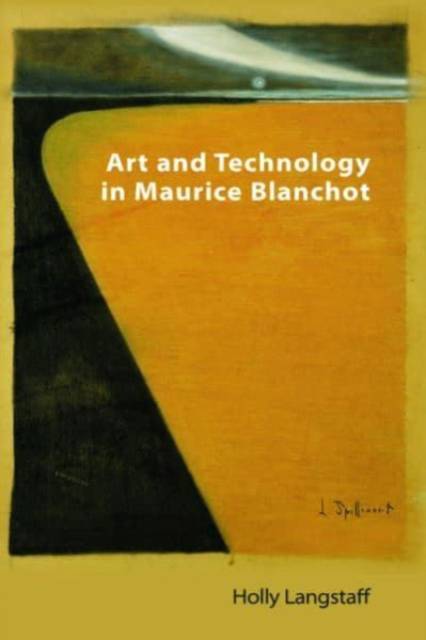
- Retrait gratuit dans votre magasin Club
- 7.000.000 titres dans notre catalogue
- Payer en toute sécurité
- Toujours un magasin près de chez vous
- Retrait gratuit dans votre magasin Club
- 7.000.0000 titres dans notre catalogue
- Payer en toute sécurité
- Toujours un magasin près de chez vous
Description
Holly Langstaff reappraises the influential French thinker Maurice Blanchot's writing from the 1940s to his late work in the 1980s, demonstrating how Blanchot's exploration of the question of technology remains decisive throughout his career.
She situates Blanchot's fictional and critical work in the context of his thinking of art as techne - as it develops out of Martin Heidegger's philosophy. While Blanchot follows Heidegger in the view that writing is a form of techne, he never appeals for salvation from the menace of technology in the modern era. Rather, he sees in all forms of technology the opportunity for a new way of thinking beyond value. This, Blanchot calls an entirely different sort of affirmation.
Langstaff demonstrates Blanchot's ongoing importance for contemporary philosophical debate about technology, the post-human, and ecological thinking.
Spécifications
Parties prenantes
- Auteur(s) :
- Editeur:
Contenu
- Nombre de pages :
- 200
- Langue:
- Anglais
- Collection :
Caractéristiques
- EAN:
- 9781399515474
- Date de parution :
- 08-11-23
- Format:
- Livre relié
- Format numérique:
- Genaaid
- Dimensions :
- 156 mm x 234 mm
- Poids :
- 458 g

Les avis
Nous publions uniquement les avis qui respectent les conditions requises. Consultez nos conditions pour les avis.






